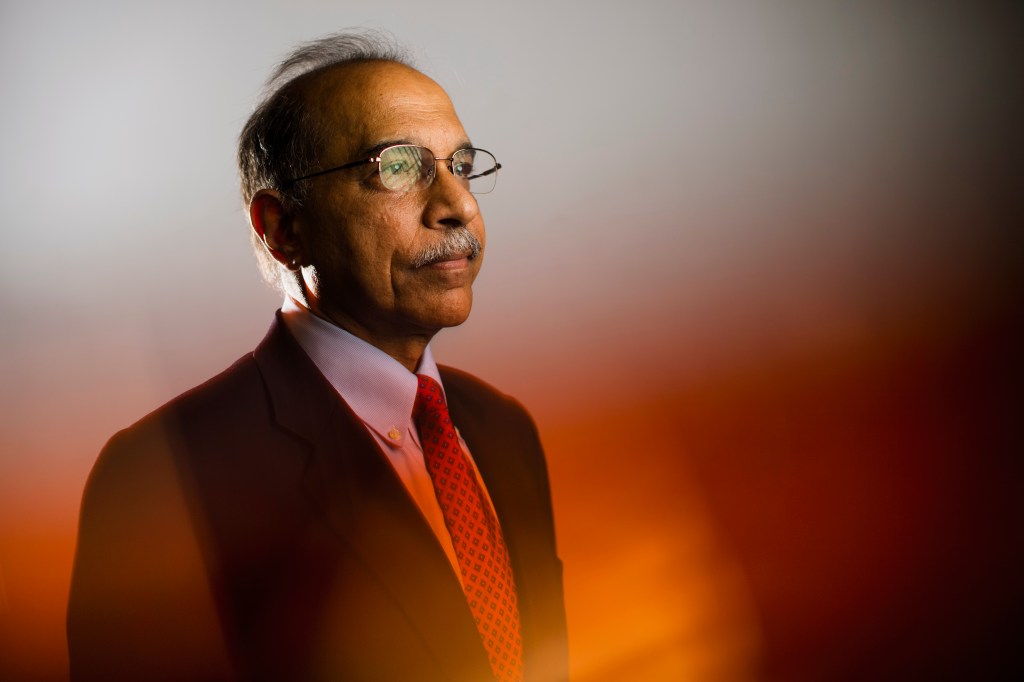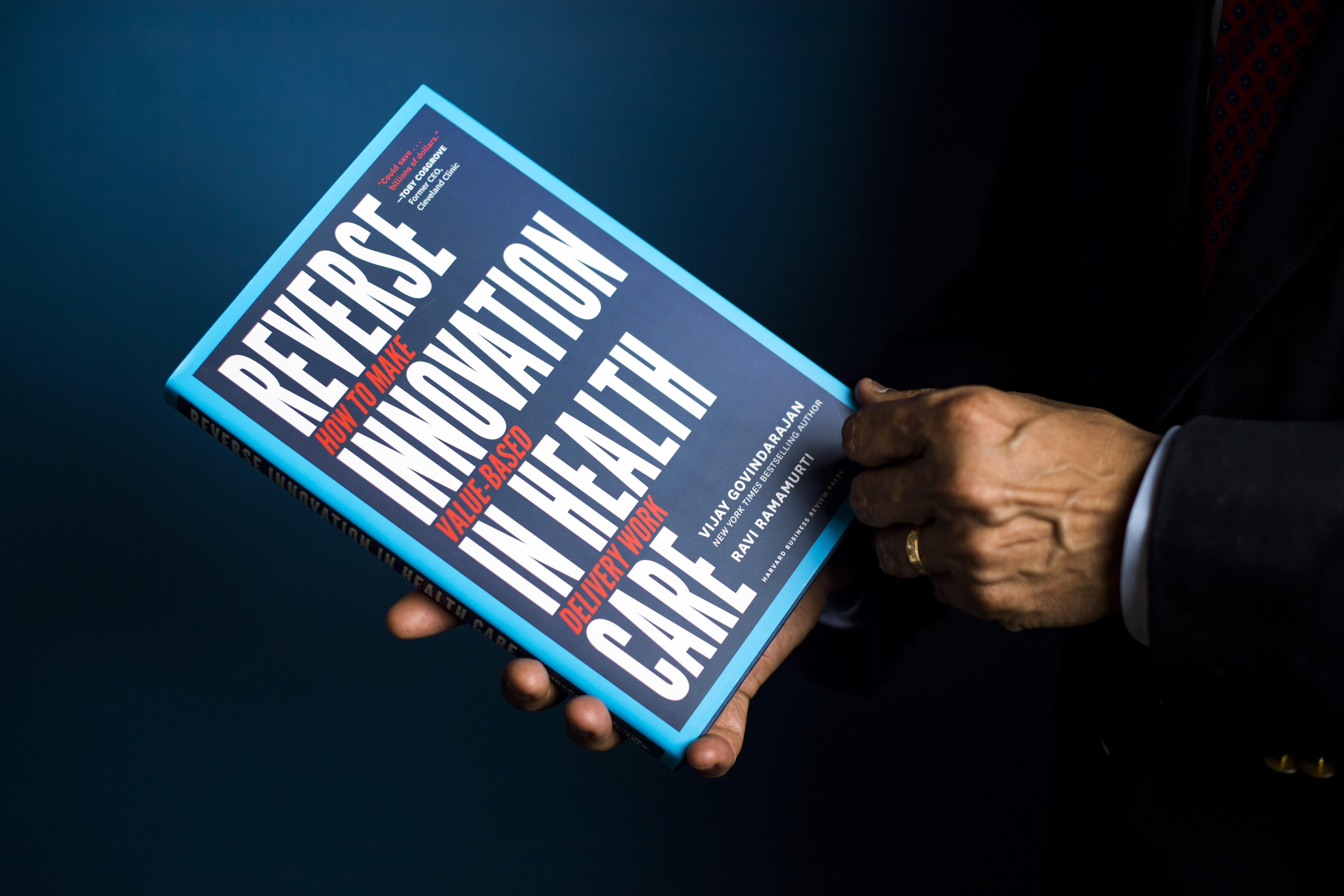Northeastern professor Ravi Ramamurti couldn’t find a good emerging markets program, so he built one

Ravi Ramamurti’s office, crammed nearly to the ceiling with papers, essays, and reference books, is more than 7,600 miles from his childhood home in India. But he’s never forgotten his roots at any point in his 36 years at Northeastern.
“I’m from India. I came here and wanted to work on the problems I saw in India, but these weren’t problems that were interesting to most university business schools at the time,” he said.
So he built a program himself.
Ramamurti, Distinguished Professor of International Business and Strategy, is the founder and director of Northeastern’s Center for Emerging Markets, which is based in the D’Amore-McKim School of Business.
“It occurred to me that a lot of people on Earth were facing problems we didn’t face in the United States,” he said. “And I think part of me felt guilty for leaving India to come here to study.”
Ramamurti came to the United States in 1977 to get his doctorate in business administration at Harvard Business School. He graduated in 1982 then came to Northeastern to teach. “Here I am 36 years later!” he said.
Sometimes it’s lonely and scary to be out front. But that’s how you find what’s next. That’s how you innovate.
Ravi Ramamurti, Founder and Director of Northeastern’s Center for Emerging Markets”
The Center for Emerging Markets, which Ramamurti founded in 2007, has become a leading hub of research on economies that are not quite developed—the largest of which are in Brazil, Russia, India, and China. The Center boasts award-winning research, an annual lecture series, and more than 60 faculty fellows from across Northeastern.
“Northeastern was among the early movers in examining emerging markets,” said Raj Echambadi, Dunton Family Dean of the D’Amore-McKim School of Business.
It wasn’t always this way, though. When Ramamurti started out, there was a sense in the business community that emerging markets “didn’t have much to offer the global economic system,” he said.
Still, the pursuit interested him. He saw the potential in these economic markets to have real impact in the future. “Fast-forward 20 years, and now things are getting interesting,” he said.
Ramamurti said we’re entering a time of reverse innovation. Where developed markets had once been at the cutting edge of advancement, now some of the most groundbreaking work is being done in countries that have been forced to find new, less expensive ways to deliver services.
This, too, is “pioneering work,” Echambadi said.

Look no further than healthcare, Ramamurti said. India is offering medical services sometimes as low as 1 percent of the cost for the same service in the United States.
“Open-heart surgery in India is around $3,000. These are countries that have had to find creative ways to deliver healthcare,” Ramamurti said. By comparison, bypass surgery in the United States can cost up to $200,000, according to the Mayo Clinic.
The topic is the focus of Ramamurti’s new book, Reverse Innovation in Health Care: How to Make Value-Based Delivery Work, which he co-wrote with New York Times bestselling author Vijay Govindarajan.
They argue that there are ideas at work in India that can be applied in the United States to drastically reduce healthcare costs. It would mean restructuring hospitals to a more networked system—where hubs offer specialty care and spokes provide more routine care—as well as shifting workloads so doctors trained in specialty surgeries are only performing those surgeries and not getting bogged down with paperwork. It would also mean “old-fashioned frugality,” Ramamurti said.
The hardest thing to translate from Indian healthcare to American healthcare, Ramamurti said, may be an inspiring purpose.
“People in India are dedicated to bringing quality healthcare to the masses, even though most of those masses cannot afford quality healthcare,” he said. However, a hint of that mission in the United States can be found in nonprofit hospitals such as Ascension Health.
With the potential for the kinds of innovation seen in the healthcare system in India, the business community is starting to sit up and take notice of emerging markets, Ramamurti said.
“We planted the flag here at Northeastern,” he said of creating the Center for Emerging Markets 11 years ago, “and now everyone is specializing in emerging markets.”
Reflecting on the journey thus far, Ramamurti paused before saying, “Sometimes it’s lonely and scary to be out front. But that’s how you find what’s next. That’s how you innovate.”





